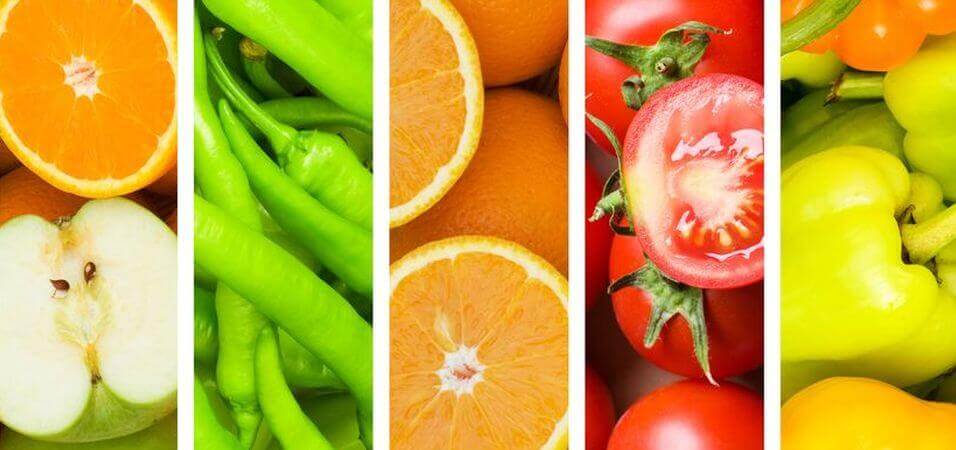If there’s one thing that would-be diet “gurus” everywhere agree on, it’s that a low-sugar diet is one of the most reliable ways to lose weight.
Cut the heinous sugar molecule out of your life, they say, and watch the pounds melt away.
Keep eating it regularly, though, they claim, and you’ll always look in the mirror with shame.
(Yeah, you know, I like to flex my lyrical muscles too…)
…
Er, anyway, sugar’s relationship to weight loss is all so neat and tidy…until someone like me comes along and points up the glitches in the matrix.
You know, the professor that lost 27 pounds in 10 weeks on a “convenience store diet” consisting of protein shakes, Hostess and Little Debbie snacks, sugary cereals, and Oreos.
How in the hell?
Or the well-designed and well-executed studies that have found no difference in weight loss whatsoever between low- and high-sugar diets.
Uh, that’s just funding biases, right?
Well, we’re going to clear all the fog in this article. By the end, you’re going to know what sugar is, how your body reacts to it, how it does and doesn’t affect weight loss, and what, if any, changes you need to make to your diet to lose weight with ease.
Let’s start at the top.
- What Is Sugar, Exactly?
- What Science Says About Low-Sugar Dieting and Weight Loss
- How Much (or Little) Sugar Should You Eat to Lose Weight?
- 5 Easy Ways to Eat Less Sugar
- The Bottom Line on a Low-Sugar Diet
Table of Contents
+Want to listen to more stuff like this? Check out my podcast!
What Is Sugar, Exactly?
“Sugar” has become a vague term encompassing all kinds of things, ranging from fruit to honey to candy.
Some people make distinctions between “natural” sugars such as those found in fruit and raw maple syrup, which we’re told are okay to eat, and “processed” sugars such as table sugar and high-fructose corn syrup, which we’re told are the troublemakers.
Well, it’s not that simple. To understand why, though, we need to get more specific and shed some light on this mysterious chemical “sugar.”
First, all sugars are comprised of carbon, hydrogen, and oxygen, and thus are forms of carbohydrate. Their primary role in the body to provide your cells with fuel to burn, and they come in three forms:
- Monosaccharides
- Oligosaccharides
- Polysaccharides
Let’s look at each separately.
Monosaccharides
Monosaccharides are also called “simple sugars” because they have a very simple structure. Mono means “one” and saccharide means “sugar.” So, one sugar.
There are three types of monosaccharides:
- Glucose
- Fructose
- Galactose
Glucose, also known as blood sugar, is found in most foods containing carbs and it functions as fuel for cells.
Fructose is found primarily in fruit and processed sugars like sucrose (table sugar) and high-fructose corn syrup, both of which are about 50% fructose and 50% glucose. Fructose is converted into glucose by the liver and then released into the blood for use.
Galactose is found primarily in dairy products and is metabolized similarly to fructose.
Oligosaccharides
Oligosaccharides are molecules that contain several monosaccharides linked together in chain-like structures. Oligos is Greek for “a few,” so a few sugars.
The fiber found in plants is partially comprised of oligosaccharides, and many vegetables also contain fructo-oligosaccharides, which are short chains of fructose molecules.
Another common form of oligosaccharide that we eat is raffinose, which is a chain of galactose, glucose, and fructose (a trisaccharide). It’s found in a variety of foods like whole grains, beans, cabbage, brussels sprouts, broccoli, asparagus, and other vegetables.
Galactooligosaccharides round out the list of oligosaccharides, and they are short chains of galactose molecules found in many of the same foods as raffinose. They’re indigestible but play a role in stimulating healthy bacteria growth in the gut.
Polysaccharides
Polysaccharides are long chains of monosaccharides, usually containing ten or more monosaccharides.
Starch (the energy stores of plants) and cellulose (a natural fiber found in many plants) are two examples of polysaccharides that we often eat.
Our bodies are able to easily break starches down into glucose, but not cellulose, which passes through our digestive system intact.
There’s a Pattern Here…
You’ve probably noticed that all the carbs that we eat are either metabolized into glucose or are left undigested, serving as dietary fiber.
This is an important observation because our bodies can’t inherently distinguish between the natural sugars found in fruit, honey or milk, and the processed ones found in a Snickers bar.
They’re all broken down into monosaccharides, which are then reduced down to glucose, fructose, and galactose, which are processed and ultimately shipped off to the brain, muscles, and organs for use.
In this way, the carbs in both green vegetables and candy bar are similar — in the end, they’re glucose swirling around in your blood.
The difference, however, is the rate at which this happens.
The candy bar turns into glucose rather quickly because it contains a large number of quickly digested monosaccharides, whereas the greens take longer to be processed because they contain slower-burning poly- and oligosaccharides.
Some people say that makes all the difference, though — that the speed with which carbs are converted into glucose determines whether they’re healthy or not.
Are they right? Not so much, but that’s another discussion altogether.
The Truth About “Good” and “Bad” Sugars

As you can see, it’s basically impossible to avoid sugars altogether.
Unless you follow a strict ketogenic diet, you’re eating a fair amount of sugar every day in one form or another.
Nobody halfway informed will claim that all sugars are bad for you, though — only the “added” sugars like table sugar (sucrose) and high-fructose corn syrup should be shunned.
Research seems to favor this view, too, demonstrating an association between high sugar intake and several metabolic abnormalities and adverse health conditions, including obesity, as well as varying levels of nutritional deficiencies.
On the surface, the whole matter seems pretty cut-and-dried. There’s no denying that eating too much refined sugar can harm our health and reducing intake is generally a good idea.
If you venture deeper into this rabbit hole, though, you start to wonder if sugar is directly responsible for the associated problems or if it’s just guilty by association with other factors that are being ignored or underweighted.
That is, does eating sugar, in and of itself, directly cause obesity and poor health or is there more going on here than meets the eye?
Let’s find out.
What Science Says About Low-Sugar Dieting and Weight Loss

Before we can look at how sugar affects weight loss, we need to review the fundamentals of weight loss.
The overarching mechanism in play is energy balance, which is the relationship between the energy you consume and the energy you burn.
The unit of measurement we use to discuss energy balance is the calorie, which is the amount of energy required to heat one kilogram of water one degree Celsius.
Energy balance is a vital concept to understand because it alone determines how your body weight changes in response to the food you eat (and thus how many calories you should be eating).
You see, if we climb over the magazine shelves and pill and powder hucksters to get a clearer view of the scientific literature, we quickly learn two things:
- You have to burn more energy than you consume to achieve meaningful weight loss.
- You have to consume more energy than you burn to achieve meaningful weight gain (both fat and muscle).
Now, if you’re tempted to scroll up to top of this article to see if it was written a decade ago, suspend your disbelief for a moment and bear with me.
First, consider the fact that bodybuilders have used these scientific principles for decades now to systematically increase and reduce body fat levels.
Then, if you’re feeling frisky, peruse the last century of metabolic research and you’ll find that every single well-designed weight-loss study…including numerous meta-analyses and systematic reviews…has determined that we have to expend more energy than we ingest to achieve meaningful weight loss.
And let’s not forget that every year new fad diets that deny the importance of energy balance pop up, and time after time they fail to gain scientific acceptance and eventually disappear.
The bottom line is this:
100 years of metabolic research has proven beyond question that energy balance, operating according to the first law of thermodynamics, is the primary mechanism that regulates body weight.
That doesn’t mean you have to count calories to lose weight, but you do have to understand the relationship between caloric intake and expenditure and weight gain and loss.
It also downplays the relationship between food choices and weight loss.
In short, the idea that eating certain foods directly helps you lose weight is a myth.
The truth is foods have no special properties as far as weight loss is concerned. They can’t themselves make you fatter or leaner.
What foods do have, though, is varying amounts of calories and protein, carbs, and fat, and that means that some foods are better for losing or gaining weight than others.
Notice I said better, not best, mandatory, forbidden, or anything else that smacks of dogma, because if you know how to regulate and balance your food intake properly, you can eat just about anything and lose weight.
Hard to believe, I know.
It helps explain phenomena like the curious case of the professor whose story I shared earlier and the guy that lost 56 pounds eating nothing but carefully controlled portions of McDonald’s for six months.
They wanted to prove one simple but very important point:
If you consistently consume fewer calories than you burn, you’ll lose weight, even if those calories come from junk food.
That’s why a study conducted by scientists at Duke University found no difference in weight loss between subjects consuming 4% and 43% of their calories from sugar.
And why those findings were echoed in another study, this time conducted by researchers at Queen Margaret University College.
And why yet another study conducted by scientists at Maastricht University found that when calories, protein, and fiber were kept equal, there was no difference in weight loss or body composition in those on high-sugar compared to low-sugar diets.
There’s a corollary here, too:
If you consistently consume more calories than you burn, you’ll gain weight, even if those calories come from the healthiest food on earth.
And all you have to do to find proof of this one is look around.
How many people do you know who are overweight despite their obsession with “clean eating“?
Well, now you know why.
How Much (or Little) Sugar Should You Eat to Lose Weight?

Now that we’ve cottoned on to what really drives weight loss — calorie, and not food or nutritional, restriction — we can tackle this question fairly easily.
The short answer is you can eat as much or little sugar as you’d like when you’re dieting to lose weight.
That said, if you decided to grocery shop at the 7-11 down the road like Professor Haub did, you’d run into problems.
Namely, your macros would be wonky, which can lead to muscle loss, and your nutrition would be wanting, which can manifest in many ways both physical and mental.
That’s why I recommend a simple, flexible protocol for losing weight:
- Eat a high-protein diet to help preserve muscle while cutting.
- Eat a lot of carbs too if you’re physically active, and especially if you’re lifting weights.
- Get the majority (80 to 90%) of your calories from relatively unprocessed, nutrient-dense foods.
- If you want, you can fill the remaining 10 to 20% with your favorite dietary sins.
That is, so long as your macros are set up properly and you’re eating plenty of nutritious foods, eating some sugar every day isn’t going to hinder your health or weight loss in any way.
I should mention, however, that drinking caloric beverages while dieting for weight loss is a bad idea.
The major problem with caloric beverages, ranging from soda to sports and energy drinks to fruit juices, is they don’t trigger satiety like food.
You can drink 1,000 calories and be hungry an hour later, whereas eating 1,000 calories of food, including a good portion of protein and fiber, will probably keep you full for 5 to 6 hours.
Here’s a quote from researchers from Purdue University, who investigated the influence of meal timing and food form on daily energy intake:
“Based on the appetitive findings, consumption of an energy-yielding beverage either with a meal or as a snack poses a greater risk for promoting positive energy than macronutrient-matched semisolid or solid foods consumed at these times.”
In other words, people that drink calories are much more likely to overeat than those that don’t, which is why research shows a clear association between greater intakes of sugar-sweetened beverages and weight gain, in both adults and children.
5 Easy Ways to Eat Less Sugar

If you like sugar as much as the rest of us, there’s a good chance you’re going to need to eat a bit less of it to bring your diet into line.
Here are 5 simple ways to do that:
1. Reduce your consumption of sugar-sweetened beverages.
There’s no denying the correlation between sweetened beverages and higher caloric intake, which can lead to excess weight, metabolic abnormalities and obesity.
This is why public health campaigns have sprung up all around the world featuring the controversial “soda or sugar tax” (which isn’t going to work, I might add).
So, ideally, you’d eliminate these beverages from your diet altogether.
If you want to do yourself the biggest solid, you’d drink nothing but plain ol’ water.
If you just have to drink something sweet every day, though, pick something with a natural zero-calorie sweetener like stevia or erythritol.
And if that doesn’t work for you, then opt for something artificially sweetened (no, it’s not going to give you cancer).
2. Eat fruits instead of sugary snacks.
Yes, fruits contain sugars, but your body responds quite differently to them than highly processed foods full of sucrose and/or high-fructose corn syrup.
So when you have a hankering for sweet, don’t reach for the bag of strawberry candies — whip up a bowl of actual strawberries instead (and if you want them to be really sweet, sprinkle some stevia or erythritol on top).
3. Eat fruits instead of drinking fruit juice.
There’s a big difference between eating an orange and drinking a glass of orange juice.
The former contains a nice dose of nutrition, including fiber to keep you fuller longer, while the latter is only a slight upgrade over a sugar-sweetened beverage.
4. Eat more unprocessed foods that you have to prepare yourself.
This isn’t just a good way to lower your sugar intake — it’s a good way to optimize your diet as a whole.
When you do this, you naturally increase your protein and fruit and vegetable intake and reduce your intake of processed meats, added sugars, trans fats, and other undesirables.
5. When you buy pre-packaged/prepared foods, pick low-sugar or sugar-free ones.
If you don’t watch out, you can rack up some serious sugar intake just eating everyday foods like yogurt, jam, dairy products and non-dairy alternatives, salad dressings, applesauce, oatmeal, and so on.
Basically, if it comes in a jar, can, bottle, container, or tub, don’t buy it before checking the ingredients label, and pass if it contains added sugar.
Remember, too, that added sugars can go by many names: molasses, organic cane sugar, fruit juice concentrate, malt sugar, corn syrup, honey, syrup, and words ending in “ose” dextrose, lactose, maltose, fructose, glucose, sucrose.
The Bottom Line on a Low-Sugar Diet

You now know more than most people ever will about sugar and how to be lean, healthy, and happy while still enjoying your sweets.
So long as you set up your calories and macros correctly and stick mainly to relatively unprocessed whole foods, a bit of added sugar here and there isn’t going to get in the way of anything.
If, however, you’re now tempted to eat more sugar because you’ve learned that caloric intake dictates weight loss and gain and not food choices, hold your sugar-happy horses.
First, your goal shouldn’t be to merely gain or lose weight, but to gain muscle and lose fat, and lose fat and not muscle.
And to do that, you have to go beyond “calories in vs. calories out” and pay attention to your macronutrient intake as well (which will naturally lower your sugar intake).
Second, the more sugar you eat, the more likely you are to develop nutritional deficiencies, which can impair your health, performance, and well-being in many different ways.
Remember that your body needs to get a lot more from food than just calories and “macros.”
What’s your take on a low-sugar diet? Have anything else to share? Let me know in the comments below!
+ Scientific References
- https://pubmed.ncbi.nlm.nih.gov/19079865/
- Malik, V. S., Schulze, M. B., & Hu, F. B. (2006). Intake of sugar-sweetened beverages and weight gain: A systematic review. In American Journal of Clinical Nutrition (Vol. 84, Issue 2, pp. 274–288). American Society for Nutrition. https://doi.org/10.1093/ajcn/84.1.274
- Mattes, R. D., & Campbell, W. W. (2009). Effects of Food Form and Timing of Ingestion on Appetite and Energy Intake in Lean Young Adults and in Young Adults with Obesity. Journal of the American Dietetic Association, 109(3), 430–437. https://doi.org/10.1016/j.jada.2008.11.031
- Saris, W. H. M., Astrup, A., Prentice, A. M., Zunft, H. J. F., Formiguera, X., Verboeket-Van De Venne, W. P. H. G., Raben, A., Poppitt, S. D., Seppelt, B., Johnston, S., Vasilaras, T. H., & Keogh, G. F. (2000). Randomized controlled trial of changes in dietary carbohydrate/fat ratio and simple vs complex carbohydrates on body weight and blood lipids: The CARMEN study. International Journal of Obesity, 24(10), 1310–1318. https://doi.org/10.1038/sj.ijo.0801451
- West, J. A., & De Looy, A. E. (2001). Weight loss in overweight subjects following low-sucrose or sucrose-containing diets. International Journal of Obesity, 25(8), 1122–1128. https://doi.org/10.1038/sj.ijo.0801652
- Surwit, R. S., Feinglos, M. N., McCaskill, C. C., Clay, S. L., Babyak, M. A., Brownlow, B. S., Plaisted, C. S., & Lin, P. H. (1997). Metabolic and behavioral effects of a high-sucrose diet during weight loss. American Journal of Clinical Nutrition, 65(4), 908–915. https://doi.org/10.1093/ajcn/65.4.908
- national heart lung and blood institute. (n.d.). Energy Balance and Obesity, Healthy Weight Basics, NHLBI, NIH. Retrieved October 12, 2020, from https://www.nhlbi.nih.gov/health/educational/wecan/healthy-weight-basics/balance.htm
- Brownell, K. D., Farley, T., Willett, W. C., Popkin, B. M., Chaloupka, F. J., Thompson, J. W., & Ludwig, D. S. (2009). The public health and economic benefits of taxing sugar-sweetened beverages. New England Journal of Medicine, 361(16), 1599–1605. https://doi.org/10.1056/NEJMhpr0905723
- Macfarlane, G. T., Steed, H., & Macfarlane, S. (2008). Bacterial metabolism and health-related effects of galacto-oligosaccharides and other prebiotics. In Journal of Applied Microbiology (Vol. 104, Issue 2, pp. 305–344). J Appl Microbiol. https://doi.org/10.1111/j.1365-2672.2007.03520.x
- West, J. A., & De Looy, A. E. (2001). Weight loss in overweight subjects following low-sucrose or sucrose-containing diets. International Journal of Obesity, 25(8), 1122–1128. https://doi.org/10.1038/sj.ijo.0801652









